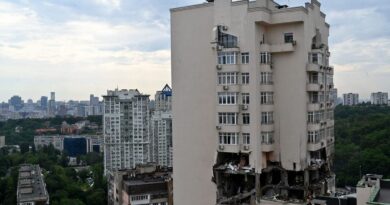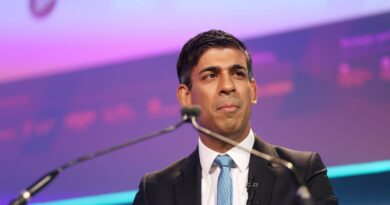Who is Yevgeny Prigozhin?
A high-profile, provocative mercenary leader with a penchant for trolling media outlets, Prigozhin has led the private Wagner Group’s involvement in Russia’s war of aggression against Ukraine. His history with leadership in Moscow dates back decades.
What is the Wagner Group?
The Wagner Group is an organization of militant mercenaries that have worked alongside the Russian army during the country’s invasion of Ukraine. Wagner’s early origins appear to be in 2014, when conflict broke out between Ukraine and Russia over the Crimean region. Prigozhin said on social media that he sought to build a group of fighters that could defend Russian interests in the region. The group has been tied to conflicts in Libya, Syria and several other African countries.
The paramilitary force has seen explosive growth during the Ukraine war, with tens of thousands of fighters now under its control. As chief of the Wagner Group throughout the conflict, Prigozhin has frequently clashed with Russian military leaders. He has published videos that contradict the Russian narrative of a smooth military operation. He often argues that his forces have led the fight in Ukraine, while questioning the competency of the Russian military. In May, he recorded a video alongside uniformed dead bodies, cursing leaders for a lack of preparedness.
What is Prigozhin’s relationship with Putin?
Russian President Vladimir Putin and Prigozhin share the same hometown, St. Petersburg (then Leningrad). While Putin rose from KGB insider to Russian leader, Prigozhin served a decadelong prison sentence starting in his teenage years before starting a hot-dog stand.
He quickly began racking up clout in the hospitality industry before gaining Putin’s attention. By the time Putin was at the highest echelons of the Russian government, Prigozhin was helping serve his state dinners — like one held in 2006 with then-President George W. Bush — earning him the nickname of “Putin’s chef.”
Putin helped Prigozhin open a school-lunch factory on generous state-funded loans. Prigozhin also owned at least part of Concord Management and Consulting, the firm that Justice Department officials suspected of bankrolling online, pro-Trump trolling operations during the 2016 election.
Why did Prigozhin do what he just did?
In a critical video posted to Russian social media app Telegram on Friday, Prigozhin chastised the country’s leadership for starting the war and said that Ukrainian forces were successfully pushing back the Russian army. The conflict blew up later on Friday, as Prigozhin claimed that Russian military leaders had ordered strikes on his men, killing thousands of them.
“The war was needed for a bunch of scumbags to triumph and show how strong of an army they are,” Prigozhin said Friday, speculating that the effort was part of the defense minister’s plan to get promoted.
How has Russia responded?
Prigozhin’s words immediately met sharp backlash and criticism from Russian state officials, who launched a criminal probe into Prigozhin. One Russian military leader warned that the events represented a “state coup.” “Prigozhin’s statement and actions are actually the calls for the beginning of an armed civil conflict on the territory of Russia,” state officials said.
What do the events mean for Russia?
In a military front already marked by confusion and mismanagement, Wagner’s turning on the Russian military leadership spells even further problems for the country’s war effort. The move could also affect the strength of Putin’s regime at home in terms of public support for the war effort. The mobilization of hundreds of thousands of young men has been heavily criticized since the war’s beginning. A Russian news agency reported that police forces were working to secure government buildings in Moscow early Saturday after news of Prigozhin’s statements broke.
What do the events mean for Ukraine?
American officials are closely watching the situation, according to the NSC. Ukraine is conducting a counter-offensive against Russian forces. With funding for future American aid to the country in question, a successful Ukrainian offensive against the Russians could help boost U.S. domestic support for the war.




